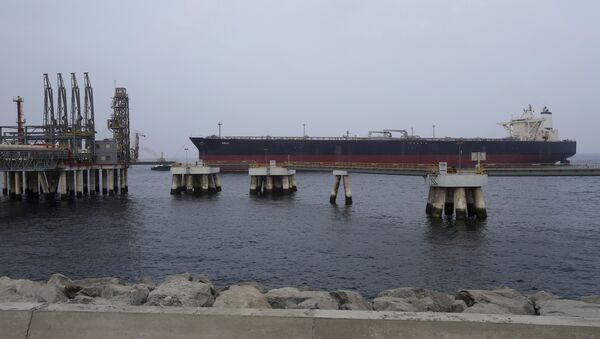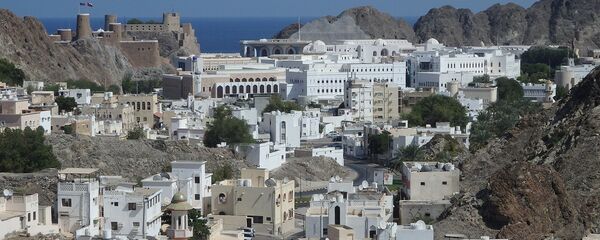According to the Emirati Foreign Ministry, four merchant vessels had been targeted by "acts of sabotage" in Gulf waters off its coast.
"Four commercial, civilian trading vessels of various nationalities this morning suffered acts of sabotage off the UAE's eastern coast," the statement reads.
The government of Fujairah denied on Sunday media reports about several heavy explosions taking place at the emirate's port, insisting that the port is functioning as usual.
"The press service of the Fujairah government denied media reports about powerful explosions in the emirate's port earlier this day and confirmed that ship traffic is as usual," the state-run WAM news agency reports.
Earlier in the day, the Lebanon-based al-Mayadeen broadcaster said, citing local media that several heavy explosions occurred in the port of Fujairah.
The blasts were heard between 4:00 a.m. and 7:00 a.m. local time (00:00 — 03:00 GMT), the broadcaster reported, adding that from seven to 10 oil tankers were in flames. The broadcaster continued by saying that the real cause of the incident has still been unknown.
Other reports, citing eyewitnesses, suggested that American and French warplanes have been seen flying over the port at the time of the incident.
فوری: انفجارهای بزرگ بندر الفجیره امارات را در هم کوبید
— اندیشکده تبیین (@tabyincenter) 12 мая 2019 г.
اهمیت بندر فجیره
1. بندر فجیره امارات یکی از مهمترین بنادر نفتی منطقه است که از جایگاه ویژهای درکاهش نقش استراتژیک تنگه هرمز برخوردار بوده ودر مقطعی راهکار ایجاد کانالی به طول 80 KM مورد مطالعه و بررسی جدی قرار گرفت pic.twitter.com/J8czgOJp33
انفجارات —الفجيرة pic.twitter.com/Cwy2zopkGz
— Hussein Cataya (@husseincataya) 12 мая 2019 г.
In July 2012, the UAE began utilising the Habshan-Fujairah oil pipeline from the Habshan fields in Abu Dhabi to the Fujairah, effectively bypassing the Strait of Hormuz.
Currently, the UAE is building the world's largest crude oil storage facility in Fujairah, capable of storing up to 14 million barrels of oil.
DETAILS TO FOLLOW



